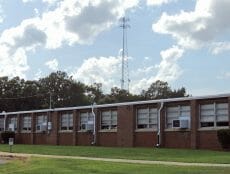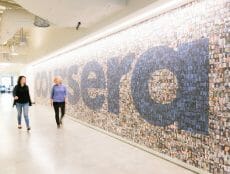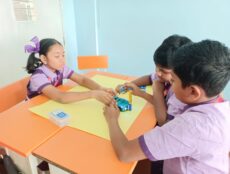
Articles
Industry News
Microsoft and the Open Data Institute Launch ‘Education Open Data Challenge’ to Support K-12 Students In the Growing Digital Divide
By Aniqah Majid
November 16, 2020
This month, Microsoft unveiled a new partnership with the non-profit organization Open Data Institute. The two announced the launch of the Education Open Data Challenge, a project which intends to produce more insight into the correlation between available broadband access and K-12 learning outcomes. Experts from around the world are invited to evaluate the long-term effects the COVID-19 crisis will have on education, and the societal efforts that must be pursued to ensure technological equipment and tools are kept accessible for young learners.
The challenge is running now until December 10. Provided with previously unavailable datasets and tools, which cover factors like national broadband coverage and the pricing of broadband speed, participants are asked to assess the gaps in digital infrastructure and provide innovative solutions to how technology can be better adapted to stop disadvantaged students from falling behind.
Exclusive access to data from Microsoft and BroadbandNow will be made available for the first time as part of this Open Data Challenge.
“Organizations like Microsoft and BroadbandNow possess a wealth of interesting data that can be used to provide insights and support decision-makers in the education sector and beyond, especially as they face unprecedented challenges. This Challenge will stimulate the exploration of innovative uses for this data, outside the boundaries of the organizations that hold it,” said Jeni Tennison, Vice President & Chief Strategy Adviser of the ODI, in a statement.
To win the challenge, participants, as part of their formed interdisciplinary teams, will be expected to answer the specific questions put forth by the ODI, according to a statement:
- How do students access remote learning, especially those who may not have easy access to digital infrastructure? (e.g. technology and internet connectivity)
- What level of digital access to learning do students from disadvantaged groups have, relative to more advantaged groups?
- What is the relationship between levels of digital skills and learning outcomes for different demographics?
The winners will be invited to elect a non-profit organization of their choice to receive a £50,000 award and the runners up will elect a non-profit organization to receive £30,000 and £20,000 awards.
Data exists on a spectrum of accessibility, ranging from closed, to shared, to open. The Open Data Challenge is providing an all-access pass to information only seen by a select few to facilitate the competition. The organizers hope to fuel a growing interest among educators and research organizations around the world in trying to understand how best to move forward from the pandemic without causing catastrophic consequences for society’s most vulnerable demographic.
Jennifer Yokoyama, Microsoft Vice President and Chief IP Counsel explains, “As students around the world increasingly rely on technology and connectivity to succeed in school, we must find ways to allow every student, everywhere, to succeed. Combining datasets in new ways can help unlock solutions to expand equitable and robust access to broadband.”
The challenge will run for four months from December 10th. More information on the challenge can be found on the ODI website.
Featured Image: Pxfuel.









No Comments